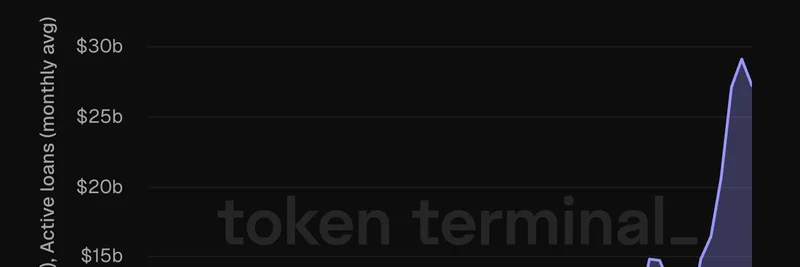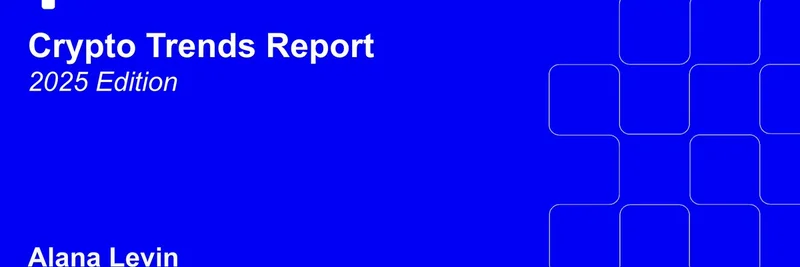Token Terminal recently shared an insightful tweet highlighting Aave's evolution in the DeFi space. Despite a dip in market cap from $7 billion to $4 billion since May 2021, Aave's active loans have skyrocketed from $6 billion to an impressive $27 billion. This contrast underscores a key point in crypto: real-world utility often outpaces speculative valuations.
The chart from Token Terminal illustrates this trend clearly. The white line represents the fully diluted valuation (FDV) on a monthly average, which has fluctuated but trended downward overall. In stark contrast, the purple area chart for active loans shows steady growth, with a sharp uptick in recent years. This suggests Aave is building genuine adoption, even as broader market sentiments shift.
Breaking Down Aave's Full-Stack Strategy
Token Terminal describes Aave's journey
- Searching for links between Aave and meme coins reveals a proposal to add PEPE as a supported asset on Aave, dated April 28, 2025.
as a "full-stack arc," outlining key phases that have driven this growth. Let's unpack them:
Lend: Building the Core Engine
Aave started by creating a robust lending protocol in DeFi, short for decentralized finance. This allows users to lend and borrow crypto assets without traditional banks, using smart contracts on blockchain networks like Ethereum.Expand: Multi-Chain Deployment
To reach more users, Aave expanded across leading layer-1 blockchains (L1s) like Ethereum and layer-2 solutions (L2s) such as Optimism or Polygon. These L2s offer faster, cheaper transactions, making DeFi more accessible.Integrate: Boosting Margins with GHO
Aave introduced its native stablecoin, GHO, pegged to the US dollar. This integration helps improve profitability by keeping more value within the ecosystem, as users can mint GHO against collateral.Institutionalize: Bridging to Traditional Finance
Now, Aave is targeting institutional players with real-world asset (RWA) collateral, like tokenized bonds or real estate. They're also adding regulated on/off-ramps for fiat conversions and a mobile app to attract mainstream users.
This strategic progression has turned Aave into a powerhouse, with active loans reflecting increased trust and usage in the protocol.
Connecting Aave to the Meme Coin World
At Meme Insider, we're all about meme tokens, so how does Aave fit in? Meme coins like PEPE or DOGE often thrive on hype and community, but they need solid infrastructure to sustain value. DeFi protocols like Aave provide that backbone through lending and borrowing features.
Recently, there's been buzz in the Aave community about integrating meme coins directly. For instance, a temporary check proposal on Aave's governance forum suggests adding PEPE as a supported asset. If approved, this would let PEPE holders use their tokens as collateral to borrow other assets, potentially increasing liquidity and utility for meme coins.
Imagine borrowing stablecoins against your meme holdings without selling them— that's a game-changer for volatile assets. As Aave's active loans grow, it could open doors for more meme tokens to enter DeFi, blending fun with finance. Comparisons between Aave and meme coins, like in articles on Gate.io, highlight this intersection, where speculative memes meet established DeFi titans.
Why This Matters for Blockchain Practitioners
For anyone in the blockchain space, Aave's story is a reminder that fundamentals drive long-term success. While market caps can fluctuate with sentiment, metrics like active loans show real engagement. As meme tokens evolve, leveraging platforms like Aave could help them mature beyond pumps and dumps.
Keep an eye on Aave's developments— their push into RWAs and institutional adoption might just pave the way for meme coins to go mainstream. For more insights on how DeFi intersects with meme ecosystems, check out our knowledge base at meme-insider.com.



